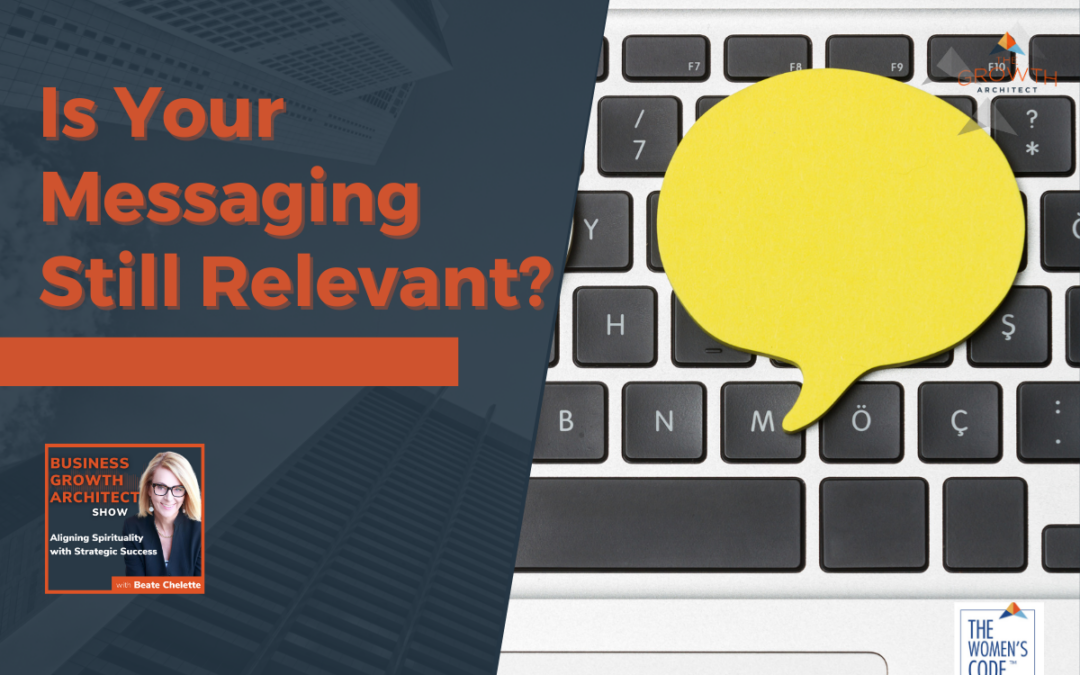As my business grows and evolves, so does my messaging. I’ve learned that sometimes what I said in the past, the way I said it, or even the words I chose, can become barriers to connecting with my audience as both they and I change. In one of my recent sessions with the ‘Turn Your Talent Into a Business’ group (we are launching the next one in February,) we had an eye-opening realization about how specific labels or terminology can either empower or alienate the very people we wish to help. I want to share one simple word that came up for one of my clients. I encourage you to take a look at this and think about if it might be time for you to reevaluate yours as well.
The Problem with Old Labels
Mike George from Soaring Families has described the services he gives for “caregivers.” What seemed like a functional, simple descriptor turned out to be something loaded with negative connotations. It carries a sense of burden, a sense of loss of identity. Would a parent who has a child that needs care call himself a “caregiver?” Or is a caregiver really a parent, lover, spouse—people with responsibilities, but also with deep emotions that are far richer and more nuanced than just caring for someone’s needs?
What became evident was that clinging to such outdated terminology not only hindered connection but also inadvertently added a label. A simple word that had made sense early on feels judgemental and irrelevant because it didn’t honor the love and resilience of the people involved.
From Caregiver to Love Giver
As we spoke about the challenges I suggested the term “love giver.” It was spontaneous. “Love giver” as a replacement to the transactional, clinical feel of “caregiver” with something warmer, more expansive, and honest? Or perhaps there is a different word for Mike to use in his work as he supports families in their challenges to care for a child or loved one.
This seemingly small change created a visible transformation in the room. That emotional recalibration isn’t just semantics; it’s the difference between resentment and fulfillment. And that is how it translates into resonance and that is what attracts your ideal client.
The Lesson for Your Messaging
The language we use can either uplift or diminish. If your messaging hasn’t changed in years, it’s possible that it is no longer doing justice to the audience you serve. Maybe it’s time to look at the labels you use, the values you convey, and ask if they still align with what you, and more importantly, your audience, believe in.
Ask yourself:
- Do the terms I use reflect my audience’s current experiences? Their emotions and fears and hope?
- Are there labels that once worked but now feel disconnected or limiting?
- How can I reframe these labels to honor the real, lived experiences of my audience?
Relevance is a Moving Target
Your audience evolves, and so does your relationship with them. The messages that once worked when your audience was in a different phase of their journey might no longer resonate. In the business world, as in life, the only constant is change. You can either resist this change and cling to old messaging, or you can allow your words to grow along with your audience, resonating with where they are today.
The next time you evaluate your messaging, ask yourself—what’s no longer relevant? What needs a refresh, a reframe, or perhaps even a complete replacement? Growth doesn’t just happen in your business model, your revenue, or your skillset. It’s in your words, in the way you connect and make others feel seen and understood.
Final Thoughts
Language shapes perception. Holding onto outdated messaging can hinder your impact. By reexamining what became irrelevant, by being bold enough to remove what no longer serves you or your audience, you open up space for true resonance, genuine connection, and the potential for a community that feels understood and appreciated.
Let this be a reminder: evolving your messaging isn’t a luxury—it’s a necessity. Stay attuned to what matters, not just to you, but to the hearts of those you wish to serve. Because words have power, and your audience deserves the very best of them.
And if you need a little help in figuring out what is going on inside the minds of your clients, we created a tool that does just that. https://AirtightAvatar.com
Let’s grow!
Beate
Beate Chelette is The Growth Architect & Founder of The Women’s Code, a training company specialized in providing companies an ROI on Balanced Leadership. She has been named one of 50 must-follow women entrepreneurs by the Huffington Post. A first-generation immigrant who found herself $135,000 in debt as a single parent, she bootstrapped her passion for photography into a highly successful global business and eventually sold it to Bill Gates in a multimillion-dollar deal.
Beate works with business leaders and supports organizations by developing and providing training the training, tools, and expertise to create and maintain a balanced, equal, and inclusive work environment that fosters creativity, employee engagement, and corporate growth.
Recent clients include Merck, Women’s Legislative Caucus of California, Cal State University Dominguez Hills, Small Business Development Centers (SBDC), NFTE, CreativeLive, the Association of Corporate Growth, and TracyLocke.
Beate is the author of the #1 International Amazon Bestseller “Happy Woman Happy World – How to Go From Overwhelmed to Awesome” a book that corporate trainer and best-selling author Brian Tracy calls “a handbook for every woman who wants health, success and a fulfilling career.
To book Beate to speak or train please connect here. Your Time Is Valuable!




